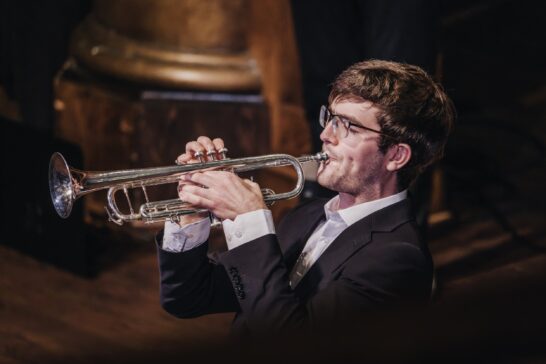Alumnus Interview: Johnathan McCullough (Opera '17)

GRAMMY-nominated baritone and director Johnathan McCullough (Voice ’14 and Opera ’16, ’17) recently premiered his production of David T. Little’s opera Soldier Songs. This powerful film, which marked his directorial and role debut, was praised by the Philadelphia Inquirer for Mr. McCullough’s “fearless theatrical vision,” called “arresting” by the New Yorker, “powerful” by the Wall Street Journal, and “revelatory….ranks with some of the best vintage work in filmed opera” (New York Times). Made in collaboration with producer James Darrah and Freshfly Media, the critically acclaimed film is currently streaming on Amazon Prime Video and Marquee TV, and opened Opera Philadelphia’s O22 Opera on Film series at the Philadelphia Film Center this past fall.
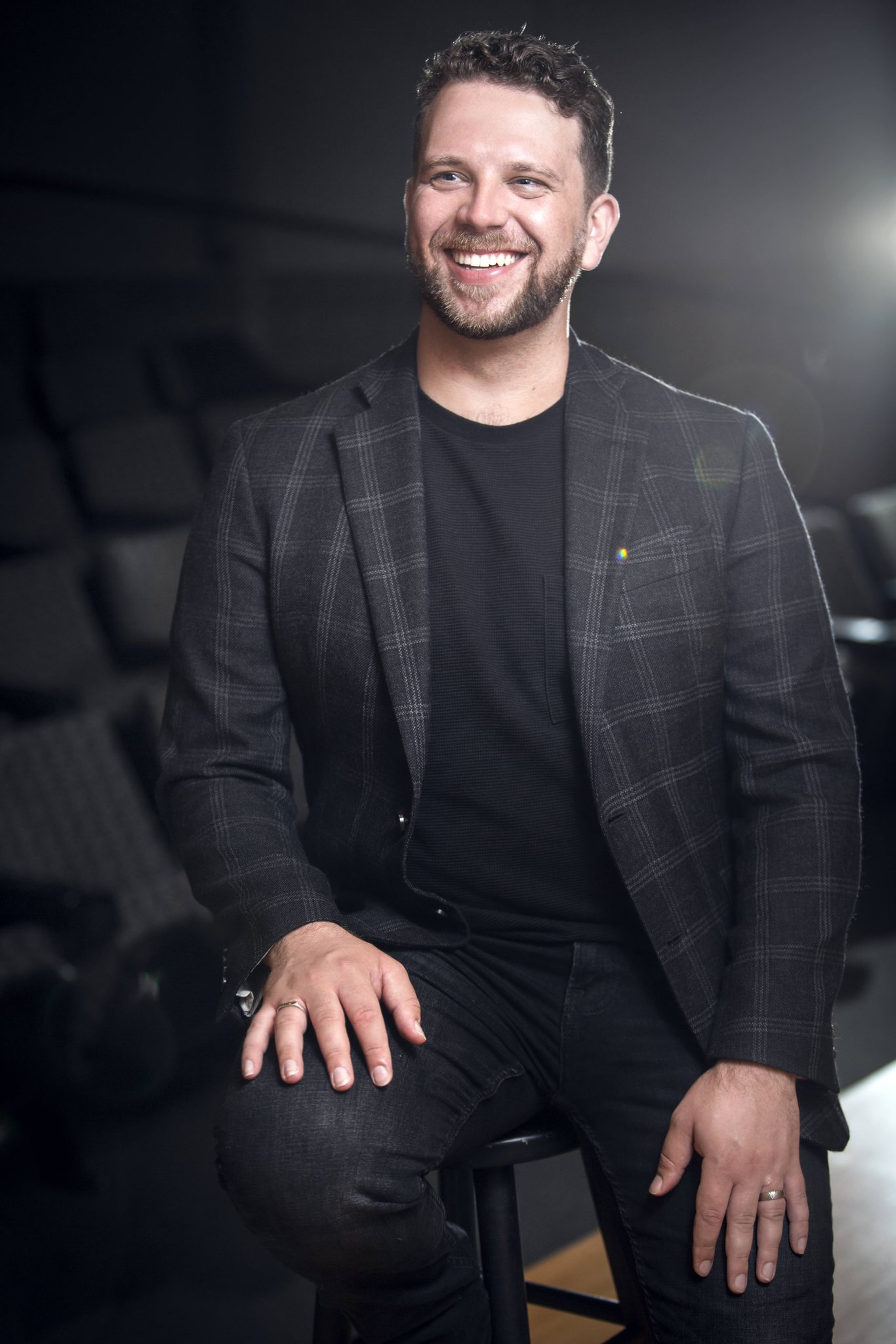
Hailed for his “rich baritone” by the Washington Post, Mr. McCullough has carved out a formidable career on the international opera scene since he studied at Curtis and received his artist diploma, bachelor of music, and master of music in opera degrees at the school. He currently serves as the Operatic Studies Director of the National Children’s Chorus, where he leads Vail Opera Camp. He also serves on faculty at the Rhode Island Philharmonic and Music School, Virtu Academy, and holds a private studio. He has also served as a guest lecturer at Curtis, Yale, Mannes, UCLA, Opéra de Montréal’s Atelier lyrique, Pacific Opera Victoria, and The National Foundation for the Advancement of the Arts.
Mr. McCullough recently discussed Soldier Songs, Vail Opera Camp, the development of his mental health seminar, and how Curtis has positively impacted his artistic growth, life, and career as an opera singer, educator, lecturer, and director.
As an alumnus of Curtis, what do you believe is the school’s most enduring impact on your life and your development as a musician?
As a proud alumnus of Curtis, I can say that the school had an immeasurable impact on my development as a musician. I was lucky enough to start performing leading roles on stage as an 18-year-old freshman, which is a unique opportunity that Curtis offers. By the time I graduated, I had been a part of around twenty-five operas and had learned many roles with the guidance of expert coaches. This experience helped me develop a sense of confidence and professionalism that has stayed with me throughout my career.
In my opinion, what sets Curtis apart is its emphasis on “learning by doing.” We were given a chance to perform and experiment in a safe yet highly professional environment, which helped us develop the skills we needed to succeed in the real world. I think this is a crucial and unique part of the Curtis experience that has helped many graduates go on to have successful careers in the music industry and continues to do so to this day.
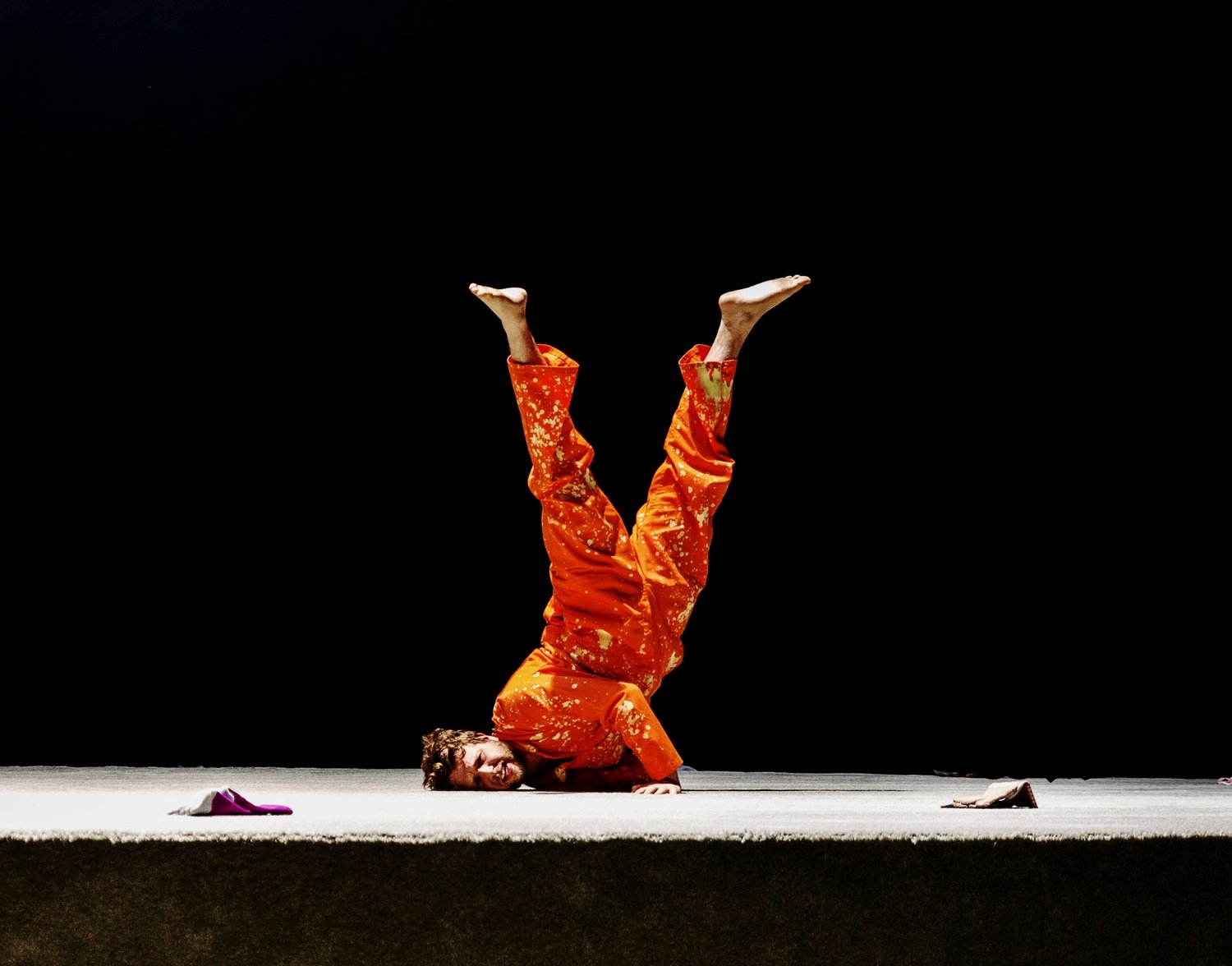 “Entrepreneurial spirit” and Curtis graduates are often mentioned in the same breath. How do you feel the school fosters this attribute in its students?
“Entrepreneurial spirit” and Curtis graduates are often mentioned in the same breath. How do you feel the school fosters this attribute in its students?
When it comes to fostering an entrepreneurial spirit, I think Curtis does an excellent job of encouraging students to think outside the box. For example, Mary Javian’s class gets students out into the community and challenges them to think about how their music can impact the world outside of the school. This kind of thinking is important for any musician who wants to have a successful career beyond the concert hall.
I believe that music has the power to do more than just entertain. It can bring awareness to important issues, inspire change, and pay homage to history and culture. The best projects are the ones that do all of these things at once. A project that is art for art’s sake is great, but one that also brings about a call to action or strengthens awareness of a certain topic is even better. Curtis encourages students to think in this way, which I think is one of the reasons why its graduates are often associated with an entrepreneurial spirit.
You were recently nominated for a GRAMMY Award (Best Opera Recording) for your cinematic adaptation of David T. Little’s Soldier Songs. This was the first film you’ve directed. What fed your desire to direct for the stage and cinema?
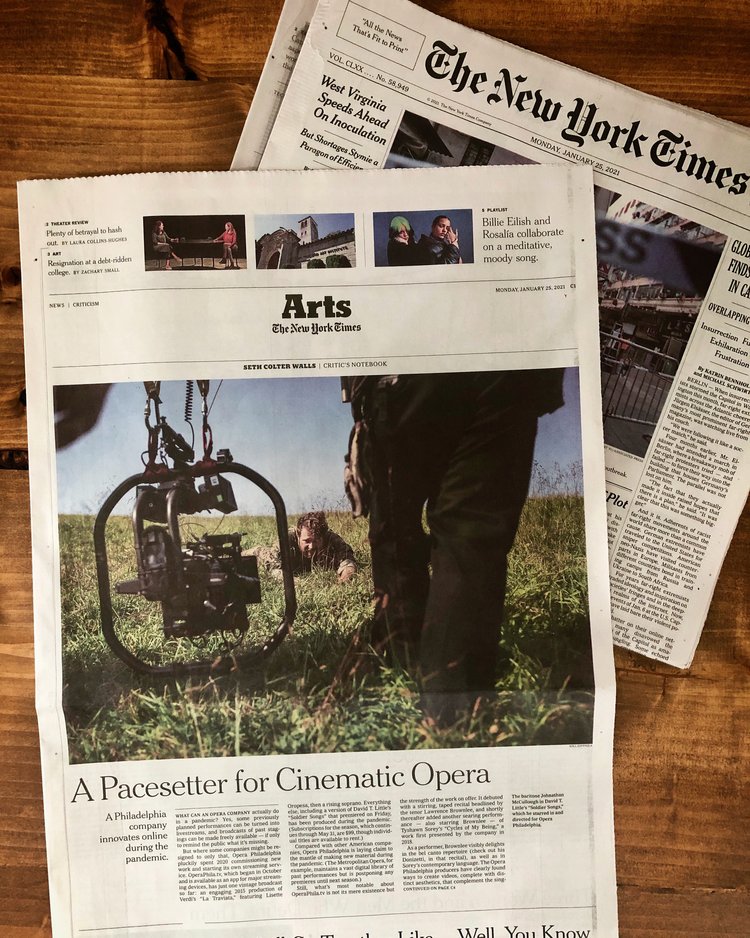 I think all directors are interested in telling stories that evoke emotions and make people think which is exactly what my goal was with Soldier Songs. My wife’s work in mental health has led me to spending much more time thinking about mental health in general. In doing research for Soldier Songs, I saw a video that made me think more about the experiences of veterans and how difficult it can be for them to adjust to civilian life, especially when dealing with mental health struggles such as PTSD.
I think all directors are interested in telling stories that evoke emotions and make people think which is exactly what my goal was with Soldier Songs. My wife’s work in mental health has led me to spending much more time thinking about mental health in general. In doing research for Soldier Songs, I saw a video that made me think more about the experiences of veterans and how difficult it can be for them to adjust to civilian life, especially when dealing with mental health struggles such as PTSD.
As I researched more about PTSD, I realized how little I actually knew about it. I discussed it with my wife and she helped me understand it more deeply. We talked about how PTSD can manifest in dissociative episodes, where a person feels like they are watching themselves in a movie. This gave me the idea to structure Soldier Songs in a way that tells the story of a veteran’s life through a series of flashbacks, seen through the eyes of the protagonist as an elder.
I wanted to use this story as a tool to help people empathize with veterans and their experiences, and hopefully inspire them to learn more and take action to support those who have served our country. Once I have an idea for a production, I start putting it down on paper and then make a pitch deck so that what I’m trying to convey is clear to others with the hope that it leads to it being produced.
As huge advocates for the mental health and the well-being of artists, you and your wife, a chief resident in psychiatry at Brown University, have been developing a seminar to present at universities, conservatories, young artist programs, and festivals. How did your interest in this topic come about, and what fuels your desire to bring this project to life?
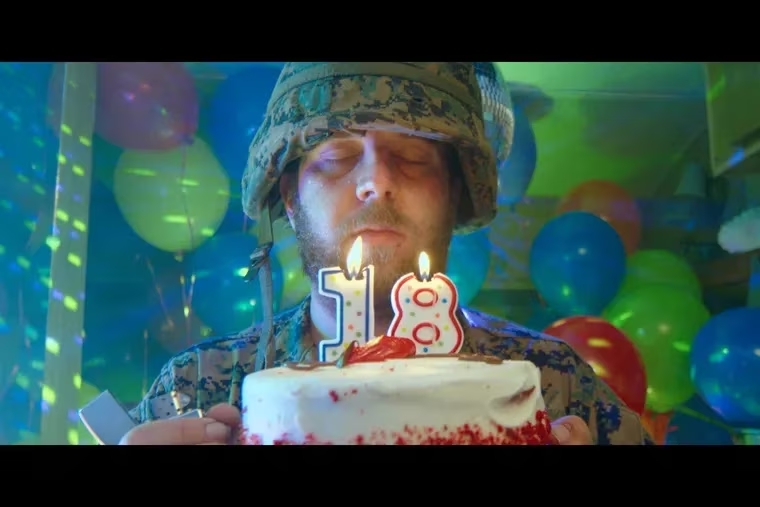 I have two lectures designed for both students and professionals. One is called “Marketing Yourself as a 21st-century Musician,” and the other, which is still in development, is a “Mental Health Masterclass” for artists I will co-present with my wife, Dr. Samantha Cerimele. Combining our knowledge, we aim to help artists with resources to navigate their own mental health.
I have two lectures designed for both students and professionals. One is called “Marketing Yourself as a 21st-century Musician,” and the other, which is still in development, is a “Mental Health Masterclass” for artists I will co-present with my wife, Dr. Samantha Cerimele. Combining our knowledge, we aim to help artists with resources to navigate their own mental health.
The former was created out of a desire to empower artists and help them take control of their careers. It’s all about changing your mindset and recognizing that you have the potential to be the one in the driver’s seat. During the lecture, I encourage people to think about their passions outside of music and explore how they can combine those interests with their musical skills to create something truly unique. It’s a message that I believe is more important than ever as the industry moves toward a more artist-driven
project world.
The second lecture, “Mental Health Masterclass for Artists,” is still in the workshop phase. The goal is to address the unique mental health struggles that artists face. It’s no secret that performing is an incredibly stressful life, and artists often grapple with imposter syndrome, stress, and loneliness, among other difficulties. While these struggles are universal, artists have a unique situation with their careers that require a more tailored approach to addressing their mental health. That’s why I’m working with my wife to create a seminar that specifically targets the mental health needs of artists. Our aim is to fill a void in the industry and provide artists with the tools and resources they need to navigate their mental health challenges.
When you graduated from Curtis, what were your aspirations, and how have they changed or evolved over time?
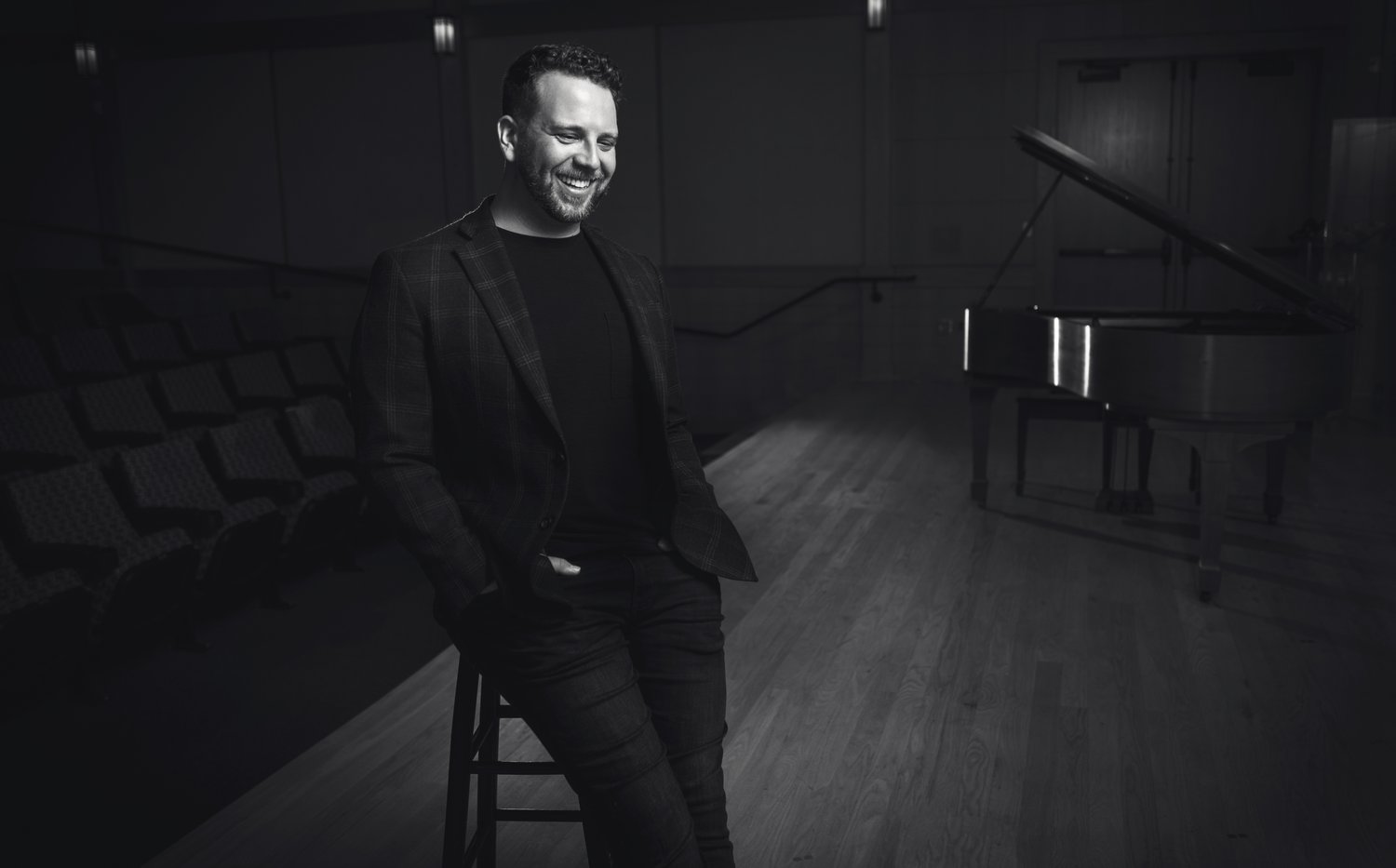 When I left Curtis, I had big dreams of singing all the leading roles everywhere. I mean, who wouldn’t, right? I still have those aspirations, and I have been very fortunate to sing many of my dream roles at opera houses all over the world. I didn’t, however, really have a producer or director mindset at that point. It wasn’t until later that I realized my passion for creating new programs for the next generation. That’s why I’m so excited about Vail Opera Camp with the National Children’s Chorus. I’m working alongside other mentors like Ashley Milanese, a Curtis alumna and soprano (Opera ‘18), to teach and guide the next generation of artists.
When I left Curtis, I had big dreams of singing all the leading roles everywhere. I mean, who wouldn’t, right? I still have those aspirations, and I have been very fortunate to sing many of my dream roles at opera houses all over the world. I didn’t, however, really have a producer or director mindset at that point. It wasn’t until later that I realized my passion for creating new programs for the next generation. That’s why I’m so excited about Vail Opera Camp with the National Children’s Chorus. I’m working alongside other mentors like Ashley Milanese, a Curtis alumna and soprano (Opera ‘18), to teach and guide the next generation of artists.
While I still love singing and plan to continue doing so for as long as I can, I know that I won’t be able to do it forever. That’s why I’m looking ahead and thinking about my legacy. Producing, directing, and mentoring are all important parts of that.
One of the things I appreciated about my time at Curtis was the exposure to different directors and their unique styles and approaches to staging operas. Some directors come in with a clear specifics about how they wanted a show to be staged, while others were more experimental during the staging process. Then there are those who do a bit of both. There is not a right or wrong way, but what was important was learning to work collaboratively with different directing styles. This variety helped us prepare for the professional world, where we encounter different approaches to the creative process. It made the transition into that world much smoother.
Are there any performances, new directing, mentorship, or performance projects in the pipeline that you’d like to highlight?
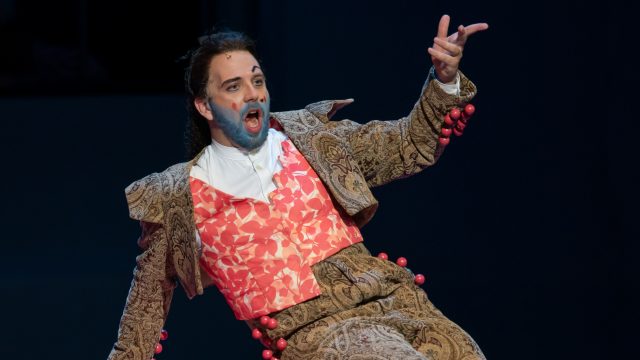 Next season, I have some exciting projects lined up. I’ll be performing as Figaro in Pittsburgh Opera’s production of The Barber of Seville and returning to Philadelphia to sing the role of Ophémon in The Anonymous Lover with Opera Philadelphia. Additionally, I’ll be singing Mercutio in Roméo et Juliette with Lyric Opera of Kansas City, which will be a house and role debut for me.
Next season, I have some exciting projects lined up. I’ll be performing as Figaro in Pittsburgh Opera’s production of The Barber of Seville and returning to Philadelphia to sing the role of Ophémon in The Anonymous Lover with Opera Philadelphia. Additionally, I’ll be singing Mercutio in Roméo et Juliette with Lyric Opera of Kansas City, which will be a house and role debut for me.
I’m also thrilled to be serving as assistant director for Omer Ben-Seadia’s Ariodante at Curtis in May. It’s a fantastic opportunity to work behind the scenes with a very talented director. I sang Papageno in her production of The Magic Flute at the Opera Theatre of Saint Louis last season. It is exciting to be working with her in a new capacity this season.
Watch Johnathan McCullough and pianist Alex Munger perform “Aimer sans pouvoir le dire” from Joseph Bologne’s opera The Anonymous Lover.
In addition to these productions, I’ve collaborated with conductor and pianist Christopher Allen to cocreate a show called Emily. The piece incorporates songs by Aaron Copland and Ricky Ian Gordon, with text by Emily Dickinson. We use Dickinson’s writing to tell her life story, set to music by these talented composers. We’re excited to be presenting Emily at l’Opéra de Montréal with the Atelier Lyrique, along with other locations that will be announced soon. Christopher and I have been working with composer and librettist Jeff and Joan Beal, who wrote a piece called Paper Lined Shack which sets letters that his great-grandmother left to music. We plan on pairing this with the Copland and Ricky Ian Gordon in future presentations. The two pieces mirror each other very well, which makes me very excited to pair them together.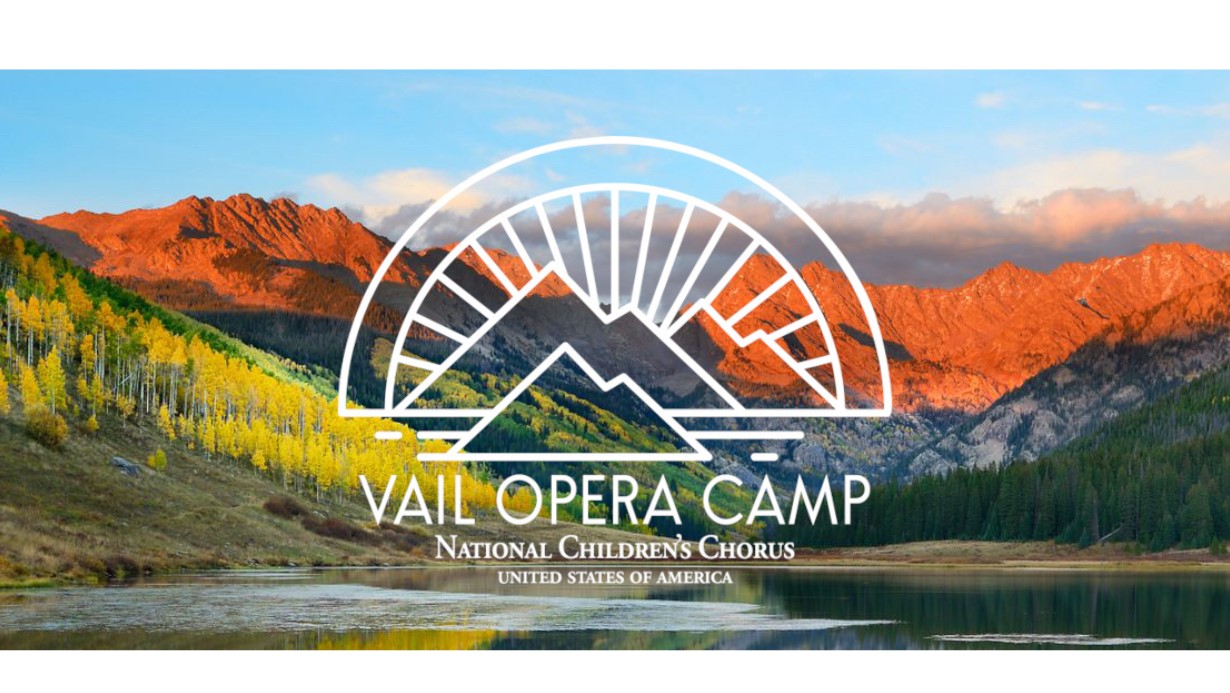
To top it off, I’ll be performing in a recital produced by Carnegie Hall as part of their Citywide series in April, accompanied by the talented pianist Carol Wong. It’s an honor to be included in this series, and I’m looking forward to sharing some beautiful music with the audience.
I’ve been really excited about Vail Opera Camp, which is a program I’ve been putting a lot of my creative energy into. It’s run under the umbrella of the National Children’s Chorus, and it’s all about introducing young people to the wonderful world of opera.
![]()
You know, many people talk about the challenge of building audiences for the arts, and I think it starts with young people. I see it as our responsibility as educators to introduce youth to these extraordinary art forms so we can teach the next generation of artists starting at a young age. That’s why we’ve designed Vail Opera Camp to help students learn the craft of opera, singing, acting, and performing. We want to give them a solid foundation that they can build on for the rest of their lives.
The program is inspired by my education at Curtis, which was an incredible experience that helped me grow as a performer and artist. We’re modeling Vail Opera Camp after that same philosophy of “learn by doing.” We want the students to feel like they’re part of a real opera company, with access to mentors who can guide them throughout their lives.
One of the things that makes Vail Opera Camp unique is that we’re not just focused on the performance
aspect of opera. We also offer conducting, stage direction, and stage management fellowships. We want to help young people explore all aspects of the art form and find their own paths within it.
We’re also committed to making the program accessible to everyone, regardless of their financial situation. We know that producing opera can be expensive, but we don’t want that to stand in the way of someone’s dreams. If someone wants to attend Vail Opera Camp but can’t afford it, we’ll work with them to make it happen. We believe that everyone deserves the opportunity to experience the magic of opera.
Learn more about Vail Opera Camp.
Do you find there is a unique bond between Curtis students when they leave the school that isn’t necessarily present at other conservatories or music schools?
Strong bonds are formed in the production process. We had the opportunity to create four operas per year for multiple years, so those bonds that were created were extremely strong.
What is one of your favorite roles and why? Do you have any dream roles?
My favorite role was Oppenheimer in Doctor Atomic. That was a huge project I got to do at Curtis and a big turning point in my career in how I thought about approaching roles and singing in general. On the other hand, I love doing Papageno. I would love to eventually sing Billy Budd, as I’m performing a lot of Britten now. I’ve done the aria for years but never the role.
What pearls of wisdom do you both have for students currently attending Curtis and recent alumni of the school?
The days of waiting for your agent to call to get a role or get into auditions are fewer and farther between. You’re not going to get an email unless you send an email. Don’t be afraid to be in the driver’s seat of your own career.
Watch Johnathan McCullough perform the aria “Batter My Heart” from Curtis Opera Theatre’s production of composer John Adams’s Doctor Atomic.
Visit Johnathan McCullough’s official website HERE.
Interview with Johnathan McCullough by Ryan Scott Lathan.
Headshots and portrait photos of Johnathan McCullough by Daniel Welch. Photo of Mr. McCullough as Dr. J. Robert Oppenheimer in Curtis Opera Theatre’s Doctor Atomic by Karli Cadel. Photo of the New York Times cover courtesy of artist’s website. Photo still from the film of Soldier Songs courtesy of FreshFly. Photo of Mr. McCullough in Wolf Trap Opera’s The Barber of Seville, 2019, courtesy of company website. Photo of Mr. McCullough and Angel Riley as Papageno and Papagena in Opera Theatre of St. Louis’s The Magic Flute by Eric Woolsey.


